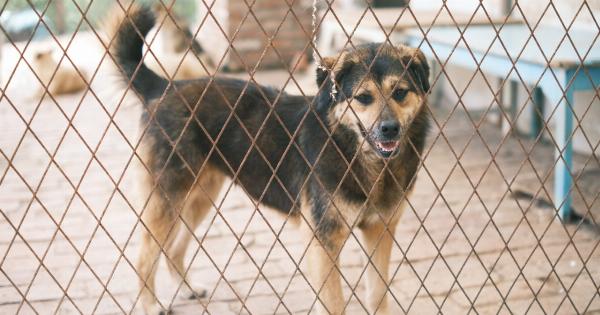The Donskoy Sphinx is a unique and mysterious breed of cat that has captured the hearts of many feline enthusiasts around the world.
Known for its hairless appearance and captivating eyes, this breed stands out from the crowd and has a fascinating history that adds to its allure. In this article, we will delve into the origins, characteristics, and care requirements of the Solitary Donskoy Sphinx.
Origins and History
The Donskoy Sphinx originates from Russia and has a relatively recent history compared to other cat breeds. In 1987, a hairless cat named Varya was discovered in the Russian city of Rostov-on-Don, which is where the breed gets its name from.
This cat was found by Elena Kovaleva, who took her in and began breeding her with other cats to establish the Donskoy Sphinx breed.
Through selective breeding, Kovaleva aimed to create a unique breed with a hairless appearance, large ears, and a muscular body.
The breeding program included crosses with other breeds such as the Siamese and the Peterbald, which helped to enhance certain traits.
After several years of breeding and refinement, the Donskoy Sphinx breed was recognized by various cat associations, including The International Cat Association (TICA) in 2005.
Since then, their popularity has steadily grown, and they have become a sought-after breed by cat enthusiasts all over the world.
Physical Characteristics
The most striking feature of the Donskoy Sphinx is, of course, its lack of hair. However, not all Donskoy Sphinx cats are completely hairless. Some have a fine down-like coat, known as “brush,” which can be present on their bodies.
This coat can vary in color and texture.
Their wrinkled skin and large ears contribute to their distinctive appearance. The skin is loose, especially around the neck, giving them a saggy appearance.
Despite the lack of hair, Donskoy Sphinx cats are surprisingly warm to the touch due to their high metabolic rate.
The breed has a medium-sized body with a strong muscular build. They have long, lean legs, and their paws can be slightly webbed, making them excellent climbers and swimmers.
Their eyes are another standout feature – large and expressive, ranging in color from green to blue.
Temperament and Personality
Donskoy Sphinx cats are known for their affectionate and friendly nature. They form strong bonds with their human families and are often described as being dog-like in their loyalty.
They enjoy being the center of attention and will follow their owners around the house, wanting to be involved in every activity.
These cats are highly intelligent and curious, always exploring and seeking out new adventures. They enjoy interactive playtime and will eagerly engage in games that challenge their physical and mental abilities.
Donskoy Sphinx cats are also known to be quite vocal, using a wide range of chirps, trills, and purrs to communicate with their humans.
While they are generally outgoing, Donskoy Sphinx cats can be somewhat reserved with strangers. However, with proper socialization from a young age, they can become accepting of new people and environments.
It is crucial to expose them to various experiences and individuals during their early development to ensure they develop into well-rounded cats.
Care and Grooming
Despite their lack of fur, Donskoy Sphinx cats still require care to keep their skin healthy. Regular bathing is necessary to remove dirt and oil buildup, typically once every one to two weeks.
It is essential to use gentle, hypoallergenic cat shampoos to prevent skin irritation. After bathing, their skin should be thoroughly dried to prevent any chilling.
Since their skin is exposed, Donskoy Sphinx cats are vulnerable to the sun and cold temperatures. It is crucial to provide them with a warm and comfortable environment, particularly during colder months or in households with air conditioning.
Sunscreen is also recommended when they venture outdoors to protect their sensitive skin from harmful UV rays.
Another aspect to consider is the potential for allergies. Some individuals may be sensitive to the saliva and dander of cats, including those with hairless coats.
Before bringing a Donskoy Sphinx into your home, make sure to spend time with one to test for any allergic reactions.
Health and Potential Concerns
The Donskoy Sphinx is generally a healthy and hardy breed. However, like all cats, they can be prone to certain health issues. Here are a few conditions that Donskoy Sphinx owners should be aware of:.
Hypertrophic Cardiomyopathy (HCM): This is a common heart condition in cats, and although it can affect any breed, Donskoy Sphinx cats may have a higher risk.
Regular veterinary check-ups, including cardiac evaluations, are essential to monitor their heart health.
Skin Conditions: Without fur to protect their skin, Donskoy Sphinx cats may be more susceptible to various skin conditions, such as sunburn, rashes, and dryness.
Regular moisturizing and careful monitoring for any signs of irritation or infection are crucial.
Urolithiasis: This refers to the formation of urinary stones, which can cause discomfort and urinary issues. A high-quality diet and ensuring sufficient hydration are crucial to minimize the risk of this condition.
Periodontal Disease: Like many cats, Donskoy Sphinx cats are prone to dental issues, including gum inflammation and tooth decay.
Regular dental care, such as brushing their teeth and providing appropriate dental treats, can help maintain their oral health.
Conclusion
The Donskoy Sphinx is a captivating breed with its unique appearance and affectionate personality.
From its hairless coat and wrinkled skin to its expressive eyes and loyal nature, this breed offers a special companionship to those who welcome them into their homes. With proper care and attention, the Solitary Donskoy Sphinx can thrive and bring joy to their human families.




























